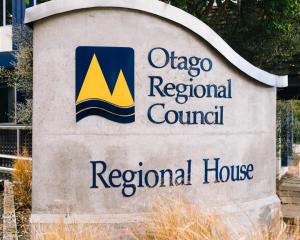
Rachel Brooking, Labour’s environment spokeswoman, said a Labour government would repeal the fast-track approvals legislation now before the select committee.
And she warned businesses not to use the fast-track process if the legislation was passed in its present form.
"Companies should be on notice that if you use this fast-track Bill, that you are liable for those approvals to be taken back," Ms Brooking said.
"In terms of reviewing approvals made under this legislation — such a review would be based on criteria relating to significant adverse environmental effects and whether a decision had already been made and rejected by a court. Legislation would be required for this and it would be a very serious undertaking.
"However, the fast-track Bill in its current form is exceptionally egregious and could lead to very damaging consequences to our environment, which justifies the possibility of review of permissions given under it."
Ms Brooking said some companies had already indicated they would not use the fast-track process and others said it could undermine environmental, social and governance requirements.
This was because the purpose of the Bill, stated in clause 3, was about facilitating projects "and there is no mention of the environment or sustainable management".
"It is a critical difference from previous fast-track laws," Ms Brooking said.
"There are also the other well-traversed issues such as politicians making the decisions, no community input and approvals being enabled for RMA [Resource Management Act] prohibited activities."
In an interview with Environmental Defence Society chief executive Gary Taylor, at the society’s annual conference in Christchurch last week, Ms Brooking said Labour would repeal the Act if the Bill passed unchanged — "absolutely, 100%".
"It’s a terrible piece of legislation," she said.
The new fast-track consenting regime was introduced by RMA Minister Chris Bishop and Regional Development Minister Shane Jones as a "one-stop-shop" process for regional and national projects of significance, designed to cut red tape and make infrastructure and major projects easier to get started.
In a similar interview with Mr Taylor, Mr Jones said the select committee would spend a lot of time on a couple of issues.
"Do we have adequate opportunity for third-party interests to be represented when the conditions are put on projects?
"And if we don’t, what’s the moral justification for excluding them?"
He was nervous about broadening the rights of participation to too many third-party interests.
"They’re incentivised never to make things happen, but always to stop things."
The role of politicians in the consenting regime, though, he called the elephant in the room.
"I think it’s been catastrophised ... that three politicians somehow are going to corrupt the balance of science, technology, economics, politics and resource management in New Zealand — but I accept that these AI-generated submitters have fixated on that.
"And obviously that’s an area that we’ll study very carefully in respect of what the select committee comes back to, because all pieces of legislation are capable of refinement."
Yesterday, a spokeswoman for Mr Jones said the minister did not have a comment on Ms Brooking’s remarks.
Mr Bishop said the Bill could change before it became law.
"I can’t speak for the Labour Party position on the Bill," Mr Bishop said.
"It is currently before the environment committee and we are open to sensible changes.
"The structure of the Bill is similar to, and based on, Labour’s own Covid-19 fast-track legislation."












